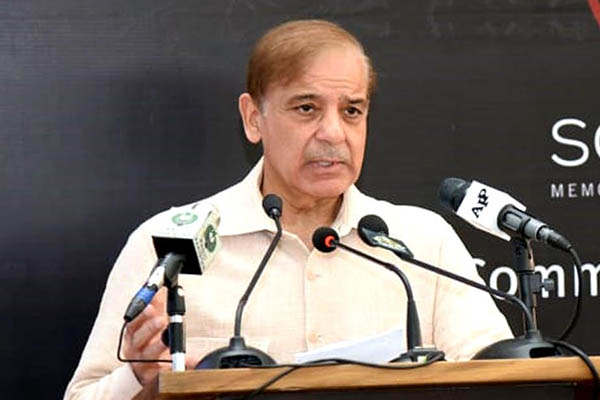
Photo courtesy PID
The ruling coalition on Friday formed a 16-member Jirga to head talks with representatives of locals who have been protesting against the resurgence of the Tehreek-e-Taliban Pakistan (TTP) in various parts of Khyber-Pakhtunkhwa province for several weeks.
The Jirga’s primary purpose, per a statement, is to discuss the worsening law and order situation, particularly in Swat, Miranshah and Mir Ali. Formally approved by Prime Minister Shehbaz Sharif, the Jirga comprises leaders of various parliamentary parties, with the first session to be held today (Friday) at the Durrani House—home of Jamiat Ulema-e-Islam leader Akram Durrani—in Bannu. Among the parties included are the Pakistan Peoples Party, the Jamaat-e-Islami, the Awami National Party, the Pakistan Democratic Movement coalition, and the National Democratic Movement.
According to media reports, the TTP has established a checkpost on the Balasoor Top, with further reports alleging that militants have also been seen roaming in areas of Matta, Swat. While the reason for the resurgence remains unclear, it has been linked to the government’s ongoing peace talks with the militants that critics say risk reversing the gains of military operations that had restored a measure of peace to Khyber-Pakhtunkhwa.
On Friday, Khyber-Pakhtunkhwa Education Minister Kamran Bangash said the provincial government also desired representation in the Jirga, adding that it was ready to work with the federal government to ensure law and order in the erstwhile tribal areas.
“We should also be made part of the Jirga formed by the federal government,” he said in statement, adding that the Pakistan Tehreek-e-Insaf (PTI)-led government did not “accept” the legitimacy of the ruling coalition but was ready to sit with them for the sake of the people of the province.
According to Bangash, the provincial government is ready to be part of any talks aimed at addressing national issues. “We are not against anyone, rather we want relationship with the U.S. based on mutual respect,” he added.
